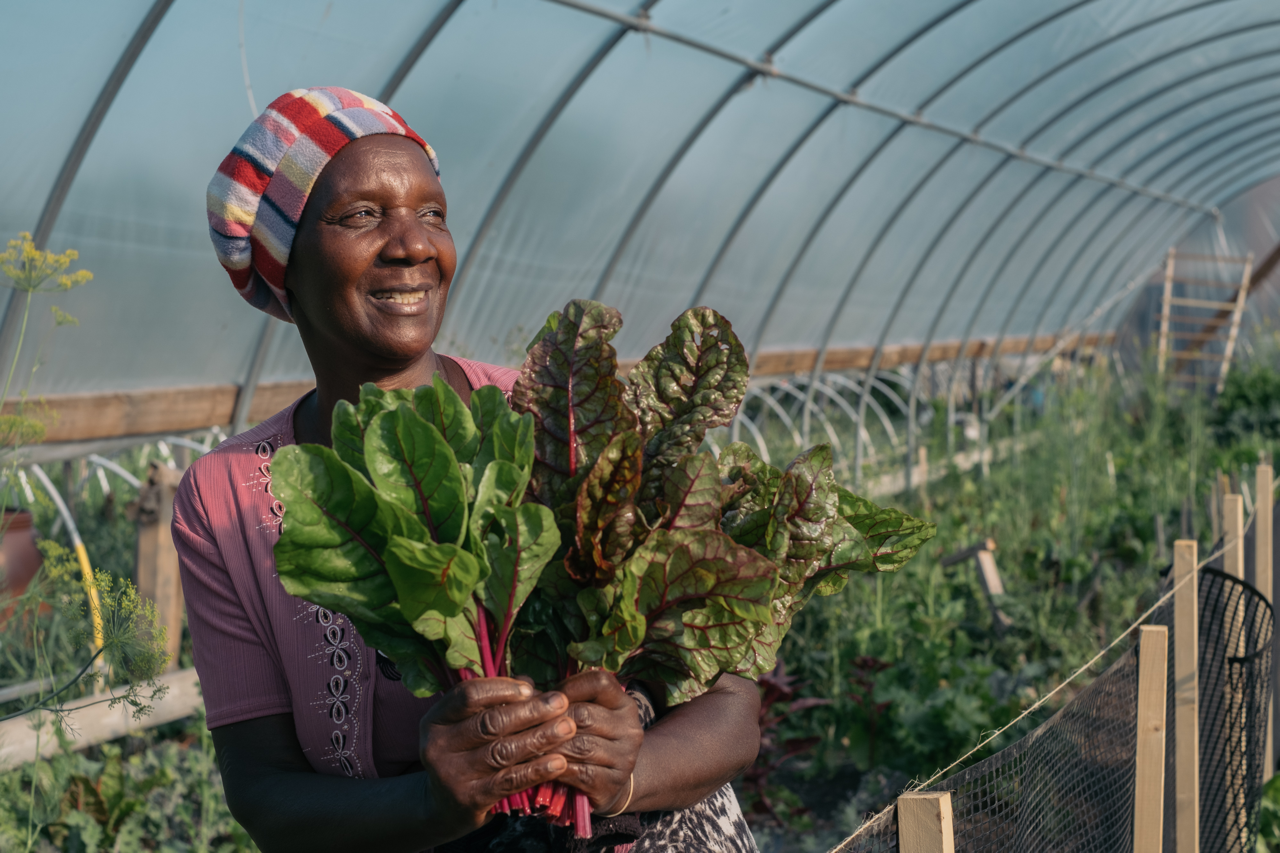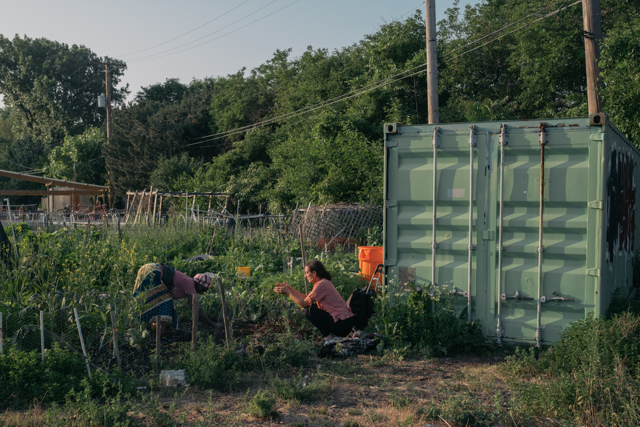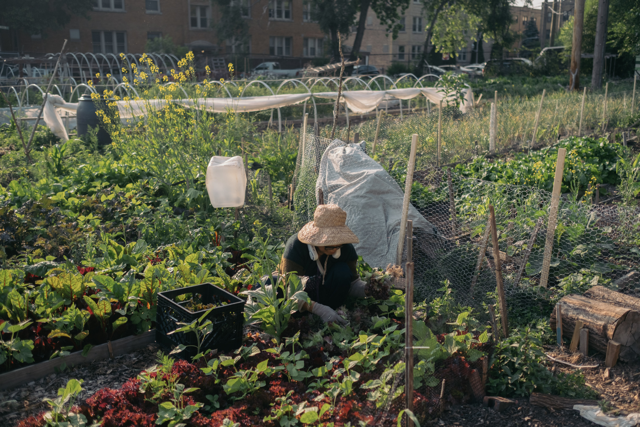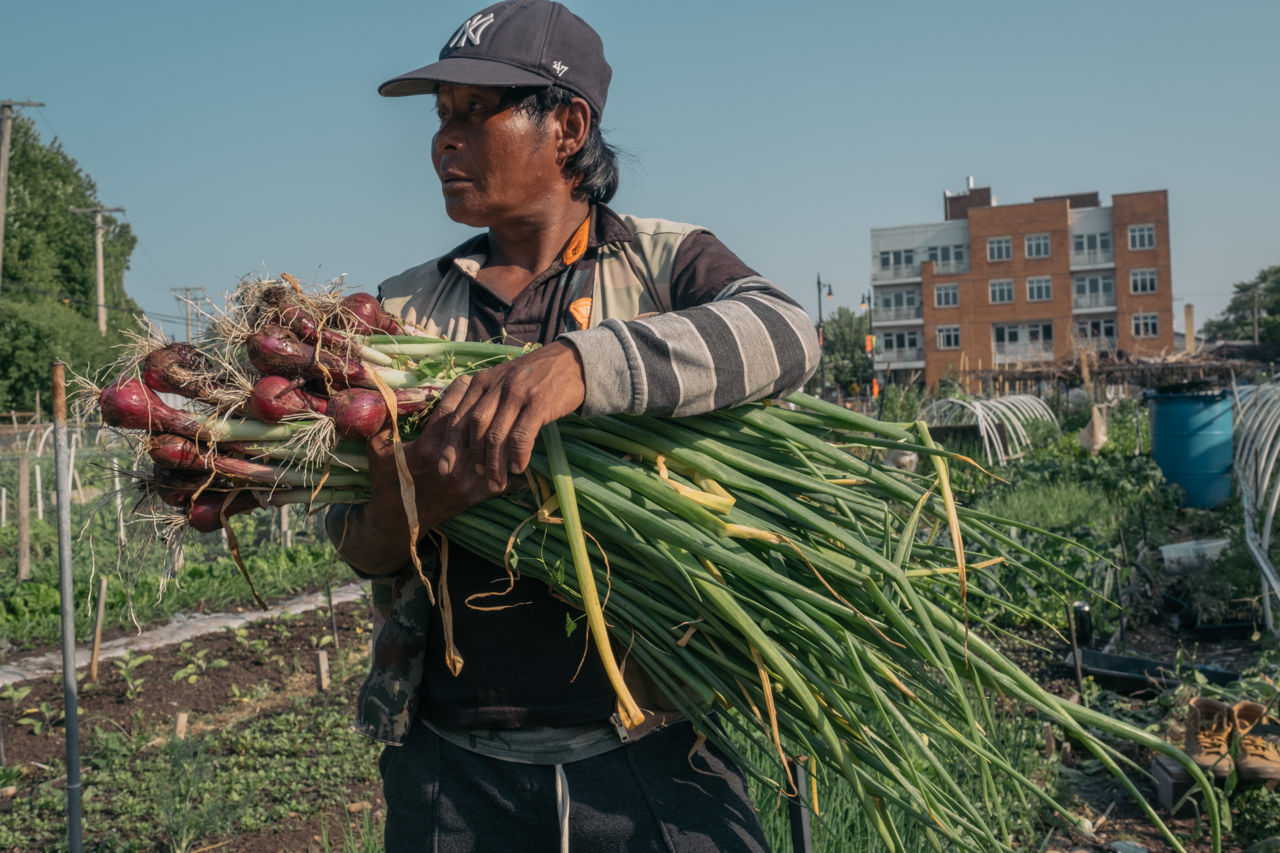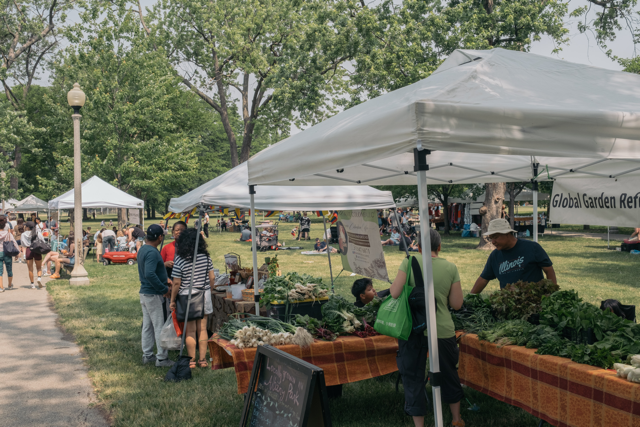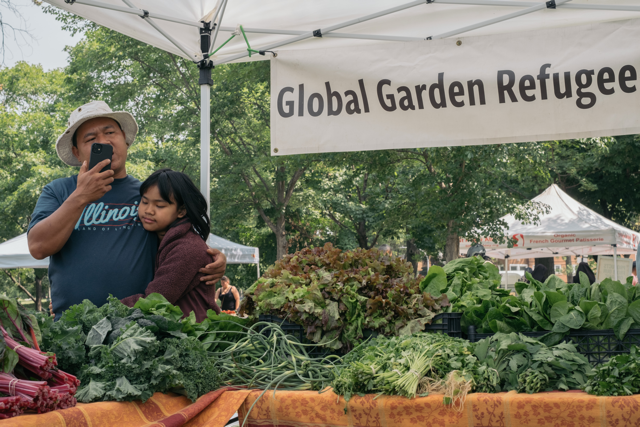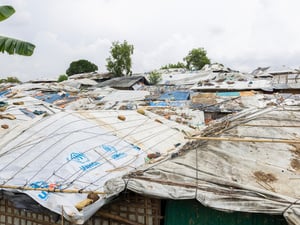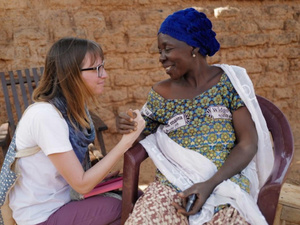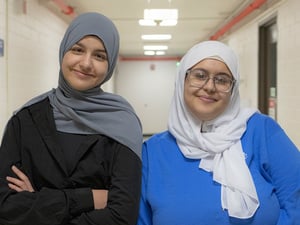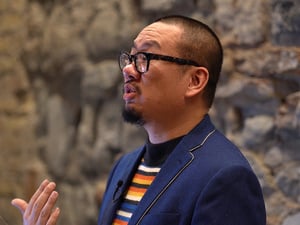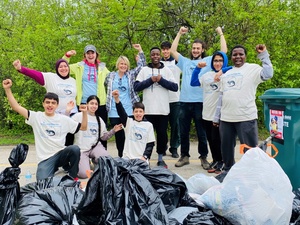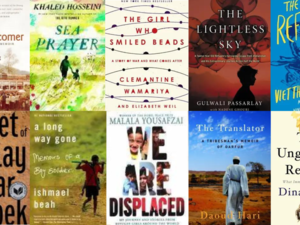In Chicago, refugee farmers cultivate hope and a sense of belonging
In Chicago, refugee farmers cultivate hope and a sense of belonging

Refugees from Myanmar sell their vegetables at the Portage Park Farmers Market in Chicago, Illinois. The Global Garden Refugee Training Farm provides space for refugees to grow and sell their vegetables.
In Chicago’s Albany Park, a once vacant urban plot has been transformed into a vibrant center of community and growth. Here, the Global Garden Refugee Training Farm thrives. It is a place where over a hundred refugee families have found a sense of purpose and community. Forced to flee their countries, these refugees now tend the soil, cultivating not only plants but also hope.
For Celestine, a refugee from Burundi, farming is a thread that connects the disparate parts of her life - from her childhood in Burundi, to fleeing to a refugee camp in Tanzania, and, finally, to being resettled in the United States.
“When we fled [to] Tanzania, we met a lot of challenges like how to eat. We were eating food that was not healthy but after a few years they gave us some land, a plot so we were able to grow everything we need,” she said. Amid the hardship of fleeing conflict and resettling to a new country, a spark of resilience was kindled as she turned once again to the familiar comfort of farming.
In Chicago, Celestine grows produce found in traditional Burundian cuisine. Her plot of land neighbors those of refugees from all around the world. Since 1975, Illinois has become a new home for refugees from over 60 countries. This rich mix of nationalities converges at the Global Garden Refugee Training Farm. Here, they work together to harvest produce that are staples in their respective cuisines and cultures. “It is work that I was used to back home,” she explained.
Haley LeRand, the Executive Director of the Global Garden Refugee Training Farm, speaks to the importance of this urban oasis as a place for maintaining traditions and identities.
“Everything from growing medicinal plants, culturally important plants, all these little cultural practices that are important to them, help them maintain their sense of identity in their new country," she explains. The farm not only supplies rare produce but also serves as a cross-cultural exchange, allowing Celestine and other refugees to share a part of their home with their new community. “We often have customers from other countries who can’t find pumpkin leaf in the supermarket, but they know they can find it here,” said LeRand.
LeRand further emphasizes the farm's role in community-building, particularly among those who face language barriers. “It’s hard to make friends if you don’t speak the language. But here they can share seeds, and pretty soon a seed that the [people from Myanmar] have suddenly is making its way into plots that are managed by people from Africa,” she says, highlighting the farm's unique ability to unite diverse backgrounds through the universal practice of farming.
In 2023, the farm's tangible success was clear, producing over $100,000 worth of fresh, “hyper local” produce, enriching the community with healthy food options. The farm donates to many food pantries in the area, and sells their fresh produce at weekly farmers markets, allowing these refugee families to find financial stability.
By providing land, tools, seeds, and training, the project taps into the strengths of refugees, many of whom have an intimate knowledge of farming. The farm works with resettlement agencies and non-profits to spread awareness of the program to refugees who have recently arrived in the Chicago area. It builds food security and economic opportunities but also fosters a sense of normalcy and autonomy, particularly vital for refugees who often face challenges like finding housing and stable employment. The Global Garden Refugee Training Farm provides a supportive environment where they can use their existing skills to integrate and better their new communities.
“Programs like ours not only provide them with nutritious produce but provide them with supplemental income so they can get on their feet, become financially stable, and integrate into the community,” said LeRand.
The sense of community has brought Celestine and other refugees both joy and a deeper sense of belonging. “I like this place because when I meet people here, it’s not people whom I speak the same language with. It’s people from different countries so all of us do not know the language,” Celestine said. “If we understand each other, okay, if we don’t understand each other…we laugh. That’s why I like it because I feel like I am not alone.”



